Applied puppetry is an area of work I’ve become increasingly interested in since starting my career as a puppeteer. The benefits of puppetry are being explored in a variety of areas, from healthcare and disability to community projects. I recently went to the Broken Puppet 3 symposium, which looked at training the applied puppetry practitioner.
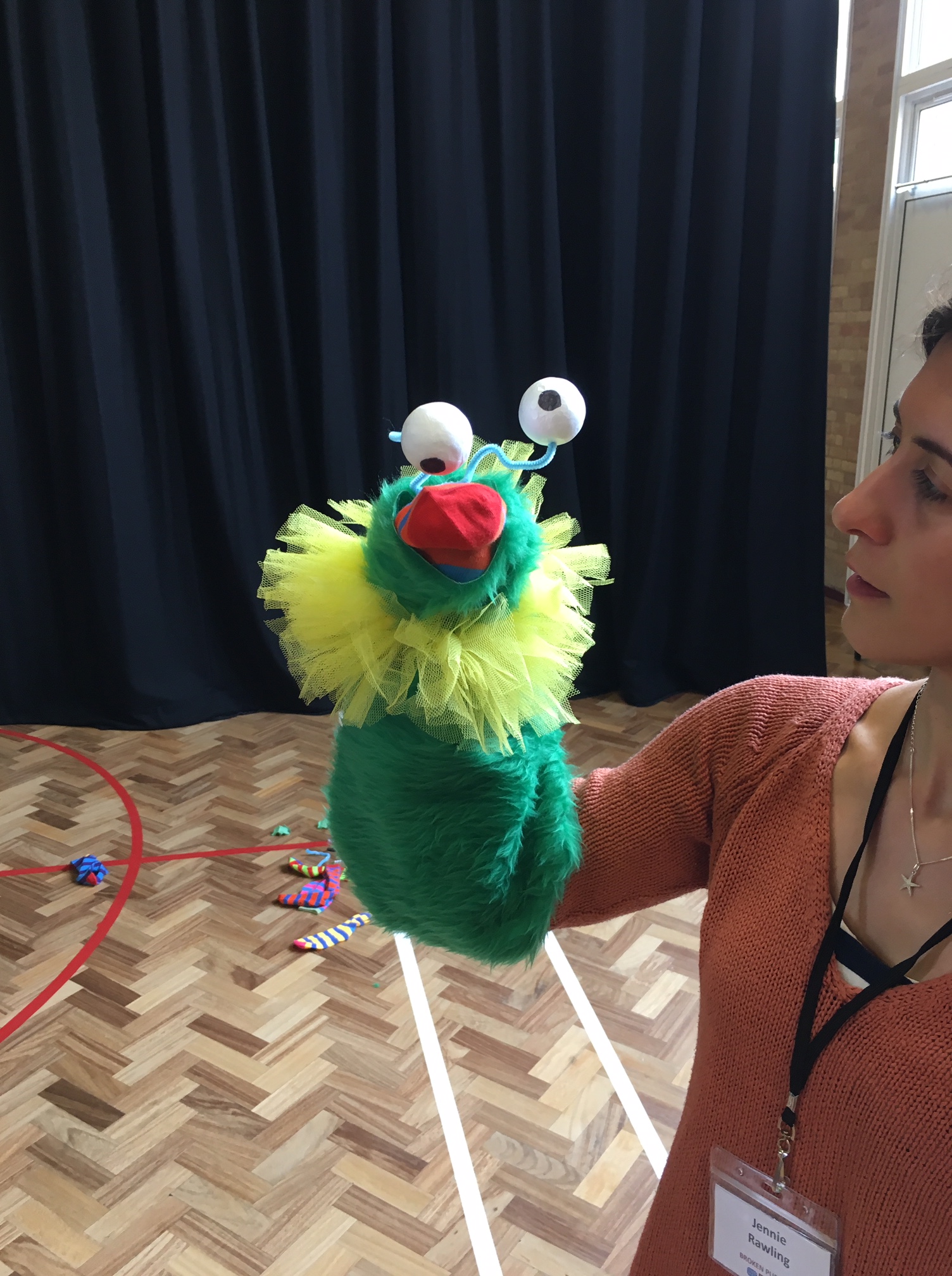
This year’s event took place at Newman University in Birmingham, and brought together performers, academics, healthcare practitioners and other professionals working in the field. The programme included research papers and presentations, practical workshops and sharing of professional practice, including a performance of Love vs Trauma by Raven Kaliana, director of Puppet (R)Evolution Theatre Company. Raven also delivered one of the two keynote speeches, the other presented by Professor Ross Prior of the University of Wolverhampton.
The Broken Puppet symposia are a series of events exploring puppetry in relation to disability and health. Last year I attended Broken Puppet 2 at Bath Spa University, which focused on puppetry and disability performance.
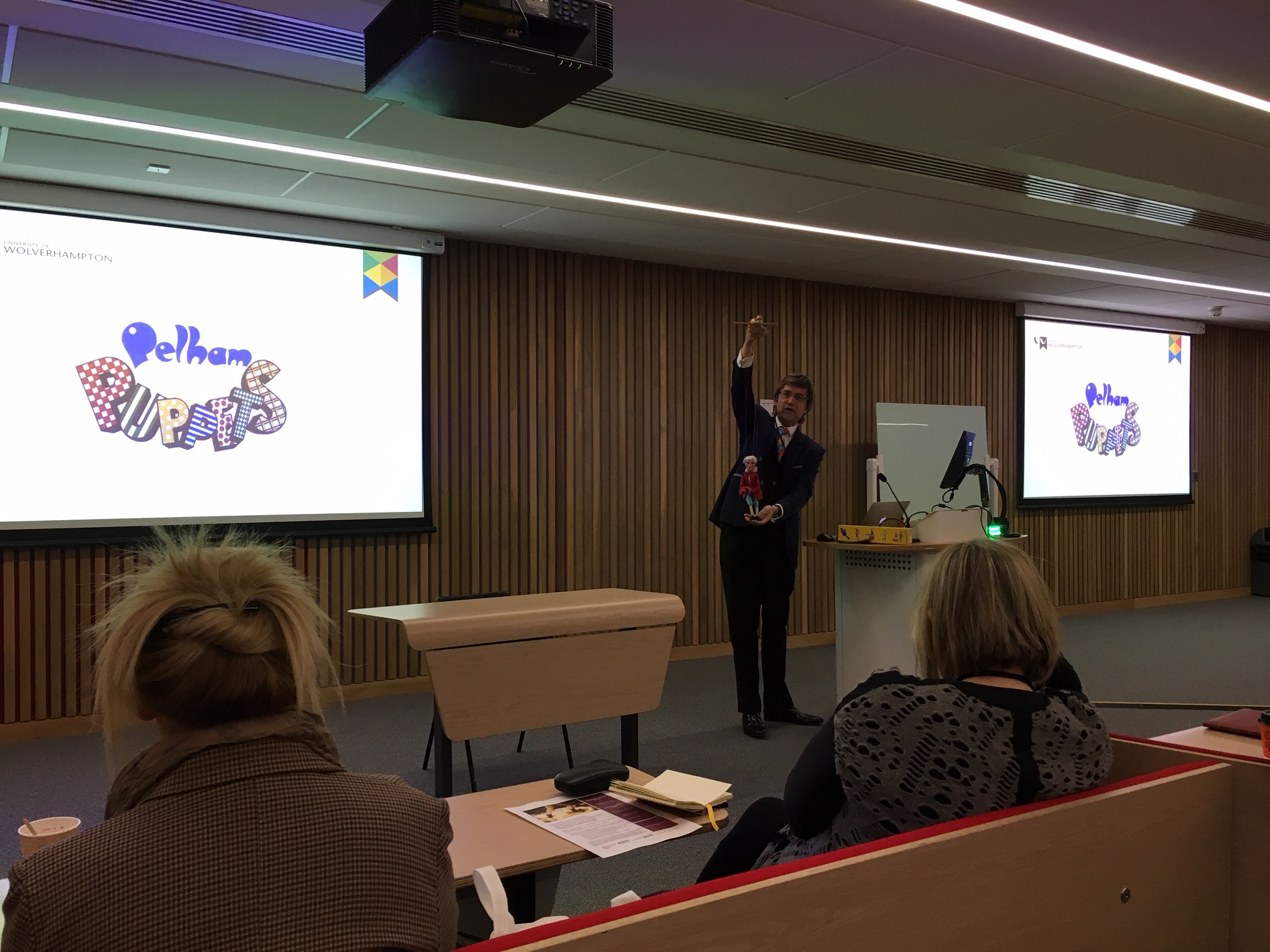
It was an interesting two days of sparking new ideas and developing existing ones. At times my brain hurt from trying to grasp various concepts, at others it felt inspired and invigorated. And I co-facilitated my first conference workshop! As Associate Artist of Vertebra Theatre I worked with Artistic Director of Vertebra Theatre and dramatherapist Mayra Stergiou to deliver a workshop on ‘Engaging the unspeakable through intergenerational puppetry’, which included a presentation on our show Dark Matter and a practical session where participants devised memories with puppets.
My highlights of the symposium included:
- discovering Dr Matt Smith’s (University of Portsmouth) project Puppet City which ‘interrogates the use of play as a participatory tool for urban design’, encouraging members of the community to re-imagine their urban landscape
- Professor Ross Prior’s thoughts on seeing art as a process, not an end product, and how art can be the mode of enquiry in research and we don’t need to make excuses for it being so
- Dr Emma Fisher (Bath Spa University) highlighting the need to make puppetry training more inclusive, which will in turn make the industry more inclusive
- Dramatherapist Amy Franczak’s practical workshop where we made a puppet to resemble a part of our body that hurt or was uncomfortable. I made a sock puppet of my gut (I have IBS), and the feelings of protection towards it that were unearthed took me by surprise
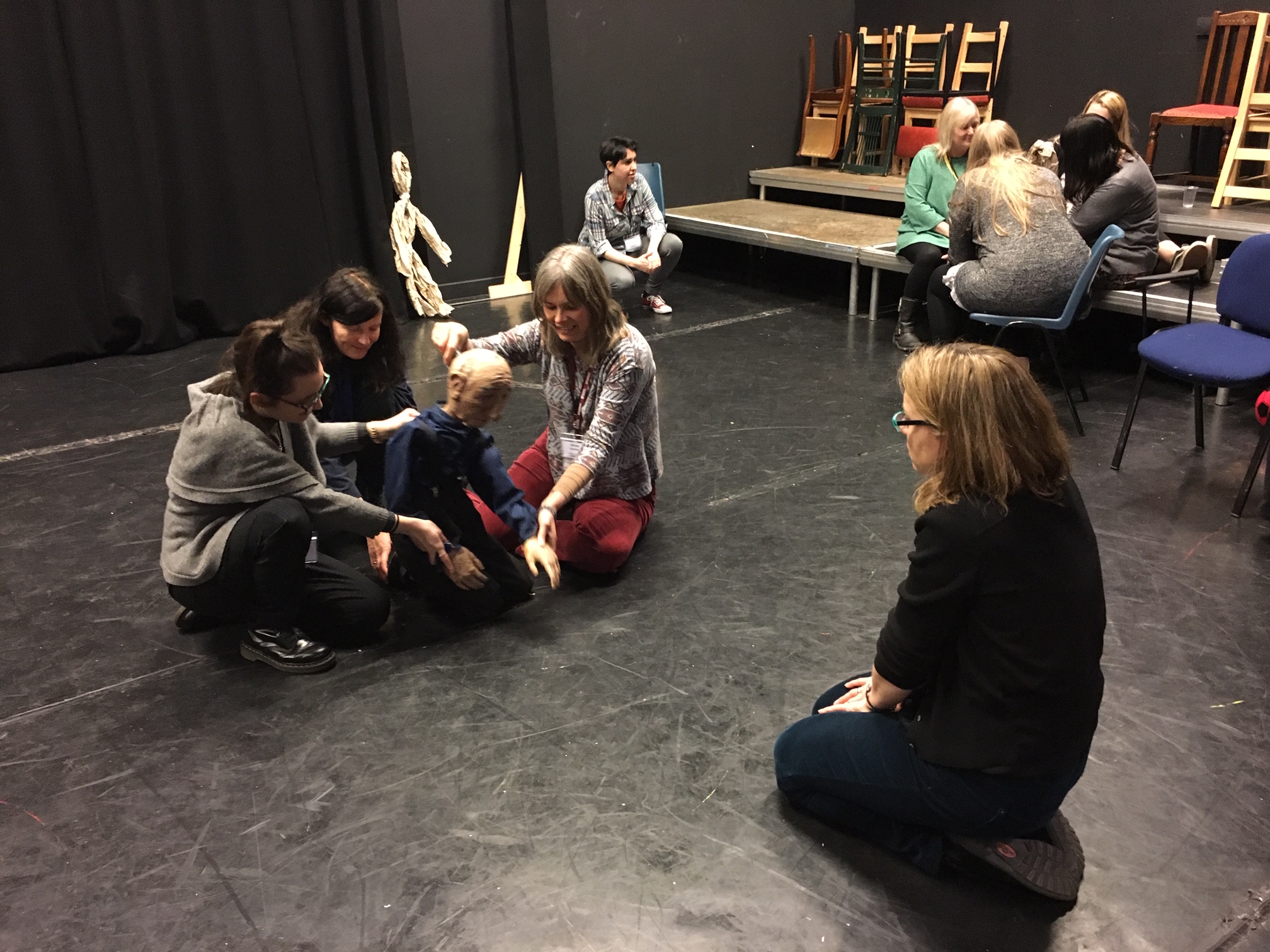

As I left Newman and headed back down to Cornwall, I was tired from two packed days but feeling inspired, and looking forward to giving myself a few days for all the new ideas to sink in!
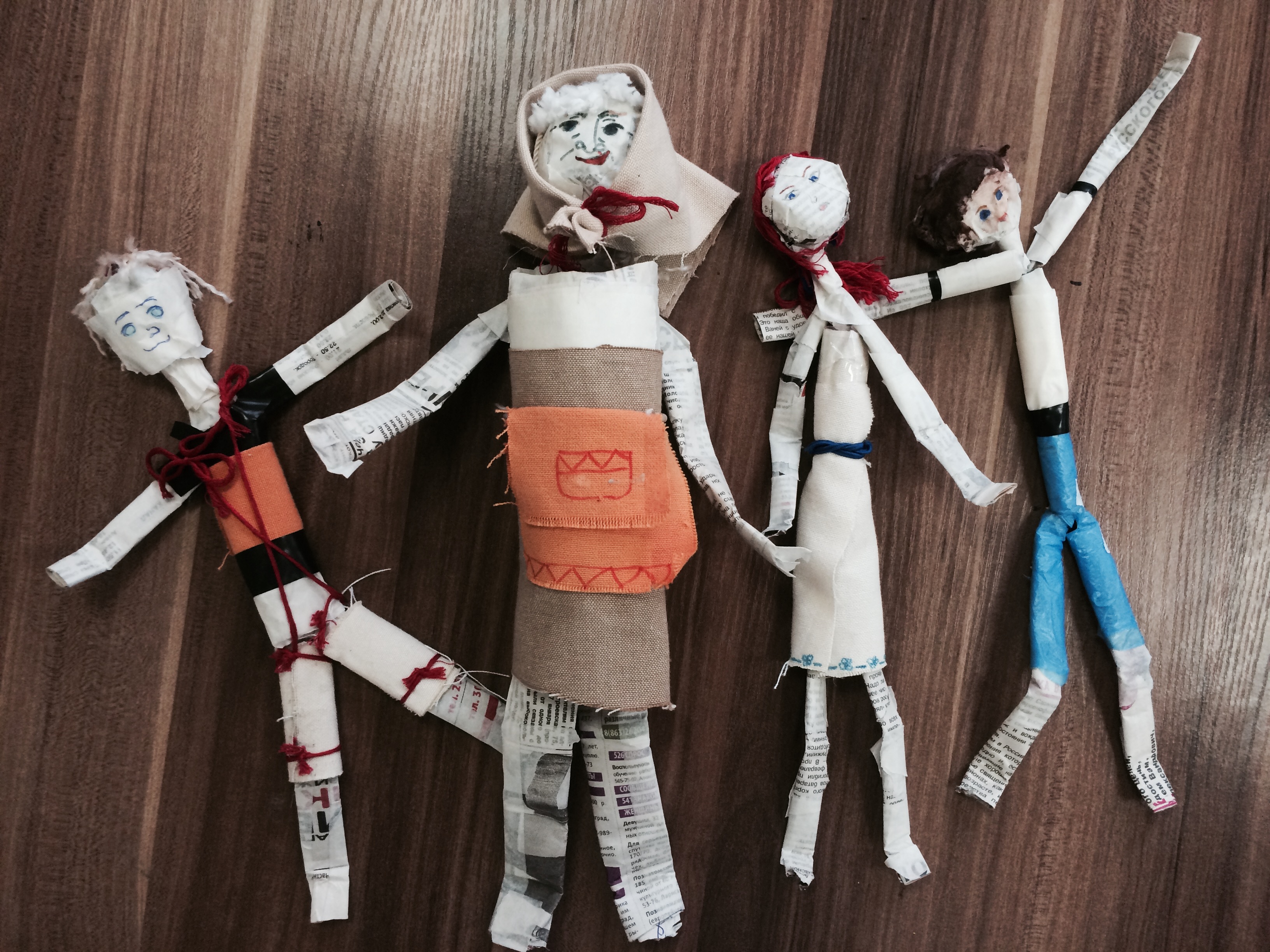
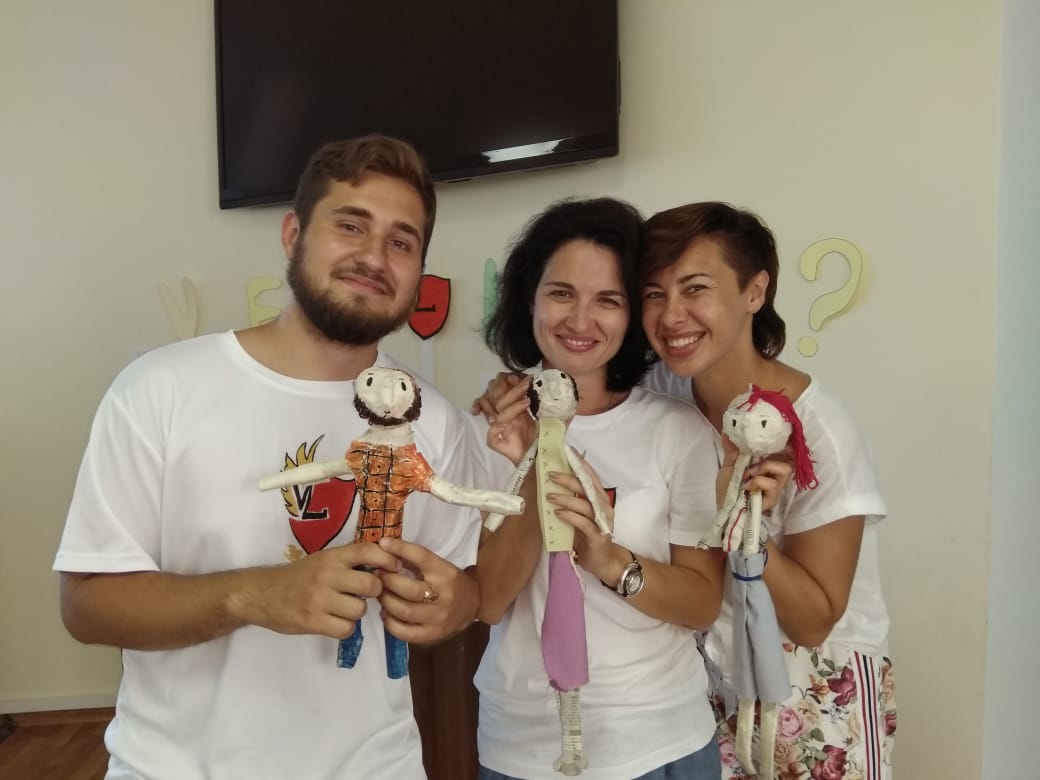
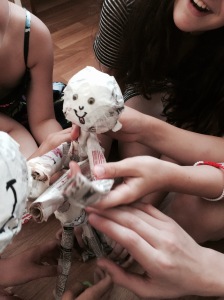 They were all enthusiastic about the puppetry, even if a little daunted when I first told them they were going to create and perform puppet shows to their peers. Natural leaders emerged within the groups, and I worked with them to ensure that everyone in each community had a role, while trying to make sure the leaders weren’t relied on too heavily by everyone else. It became clear which parts of the process each student enjoyed and excelled at or found challenging. One boy struggled to engage with the devising process, but as soon as we started making the puppets he got stuck right in and his excitement and enthusiasm was wonderful! I could see him working through problems and coming up with different solutions as he tried this way of attaching the neck or that way of creating a shoulder joint.
They were all enthusiastic about the puppetry, even if a little daunted when I first told them they were going to create and perform puppet shows to their peers. Natural leaders emerged within the groups, and I worked with them to ensure that everyone in each community had a role, while trying to make sure the leaders weren’t relied on too heavily by everyone else. It became clear which parts of the process each student enjoyed and excelled at or found challenging. One boy struggled to engage with the devising process, but as soon as we started making the puppets he got stuck right in and his excitement and enthusiasm was wonderful! I could see him working through problems and coming up with different solutions as he tried this way of attaching the neck or that way of creating a shoulder joint.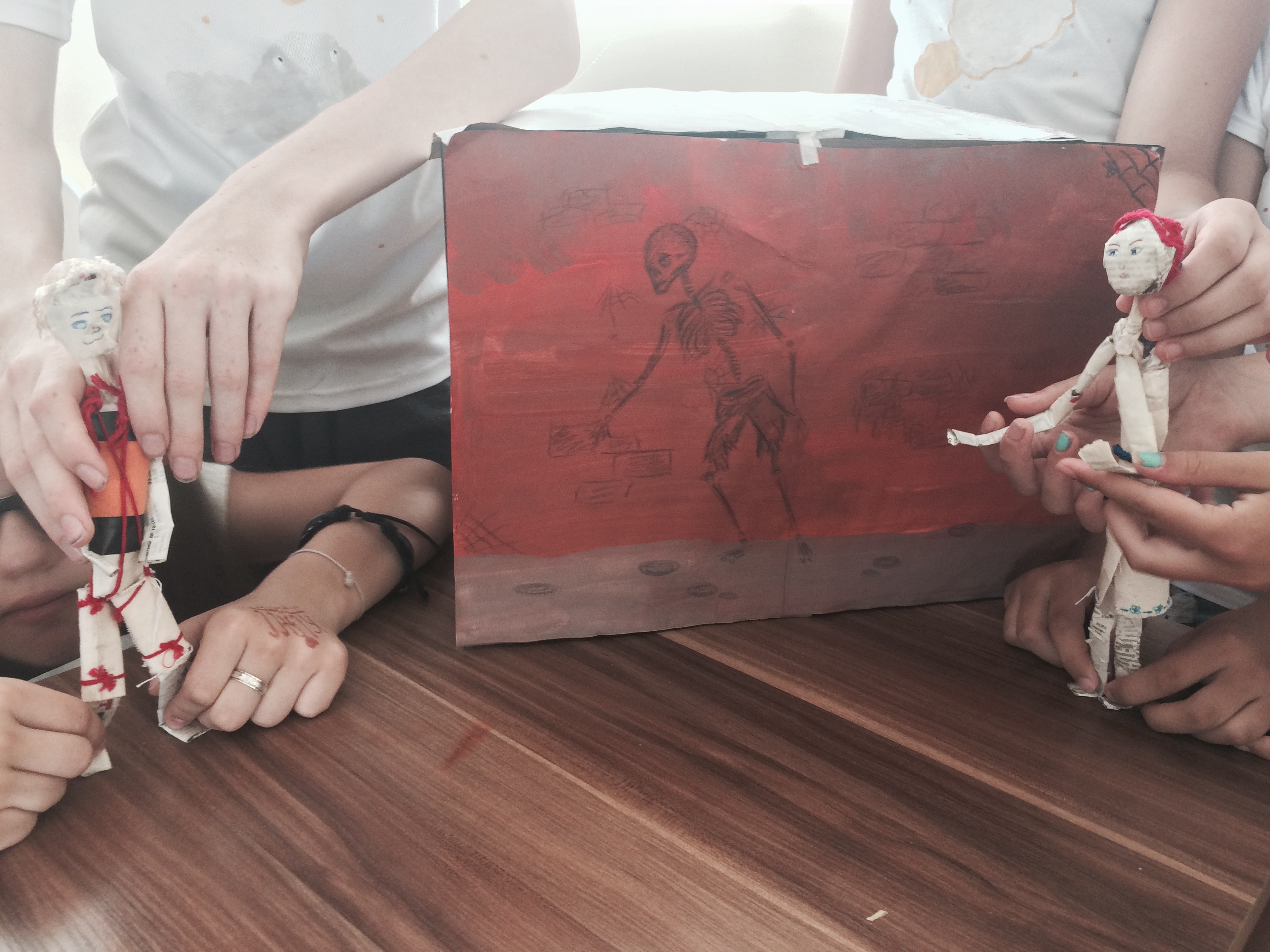


















 Throughout the day we took part in group activities that involved devising and planning theatre projects in English for different age groups. This was interspersed with leading the group in various games and activities we had each prepared for the session, sharing ideas and experiences.
Throughout the day we took part in group activities that involved devising and planning theatre projects in English for different age groups. This was interspersed with leading the group in various games and activities we had each prepared for the session, sharing ideas and experiences.







































